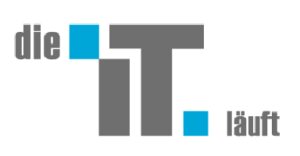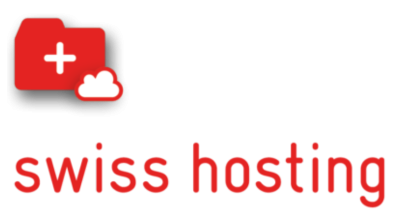Menu
Swiss Flexible Scalable
Automatic email signing & encryption
Protect your company against cyber threats with SEPPmail as a Service and increase the trust of your customers and partners with SwissSign-certified emails.

30+ resellers and end customers with over 12’000 users trust us






Your all-in-one solution for encrypted and signed e-mails
Without additional effort and at reasonable prices.
100% Switzerland
SEPPmail and SwissSign are Swiss companies. Our cloud infrastructure is also hosted at 100% in Switzerland.
as-a-Service
We set up the infrastructure, connect your e-mail server and automate the signing.
SwissSign Certificate Authority
Build trust with your communication partners automatically with SwissSign certificates.
100% Malware Catch Rate
SEPPmail not only encrypts but also filters your e-mail traffic and protects your company.
GINA encryption
The GINA procedure offers secure public key encryption for e-mails without software installation. E-mails are received as usual and decrypted by entering a password for recipients who do not use SEPPmail.
Easy to use
SEPPmail Gateway works with most common e-mail programs and does not require any additional software installation.
Industry Leading Manufacturers

One of the world's leading solutions for e-mail encryption from Switzerland. Thanks to SEPPmail's secure e-mail gateway with an integrated and patented GINA process for spontaneous encryption, SMEs and large companies can secure their entire e-mail communication at the highest level, with the least amount of effort and the simplest handling for senders and recipients.

As a recognized Swiss trust service provider, SwissSign protects your data according to the highest security standards and, with its solutions, ensures a secure IT landscape with no media disruptions. All certificates are Swiss made. We use SwissSign certificates to automatically sign your e-mails.
Prices and product information
Download our fact sheet to learn more about our product and pricing.

fast, safe, stable
More trust through the highest standards
Encryption
Support for all global encryption standards such as S/MIME, OpenPGP, TLS, SSL, etc. GINA technology is also used for on-the-fly encryption to enable secure communication with recipients who do not have encryption technology.
Signing and certificates
Maximum security with the DV SSL Silver single-domain certificates from SwissSign. Verification of identity via domain and with 99.99% browser compatibility. In this way, the recipients in your mailbox can see immediately that your e-mails are trustworthy.


automated, practical, scalable
More security with less effort
Automatically
Your employees' e-mails are automatically encrypted and provided with a SwissSign certificate. E-mails are also automatically encrypted within the company and do not require a key within the domain network.
No software installation
No software installation is required on the client computer; E-mails can be sent in the usual e-mail program (Outlook, Notes, Mail, Thunderbird, etc.).
reliable, highly available, flexible
More power for efficient operation
High availability and performance
High availability thanks to the redundantly hosted SEPPmail cluster in Naveum's data centers and powerful performance of the gateway thanks to "queueless" operation.
Compliance and business processes
SEPPmail meets all common compliance requirements such as SOX, PCI, Basel II and HIPAA to minimize the risk of liability. Adaptation to company-specific security policies (programmable rule engine) to map internal company processes.

«Working with the Naveum team is simply fun! Professional solutions at attractive prices are the foundation for the unique services that we can offer our customers.»

«Naveum always convinces with technical know-how, flexible working methods and modern thinking in order to master all kinds of challenges. In Naveum we have found a partner who takes every one of our requirements seriously and is simply on the same wavelength as us.»

«In addition to the technical know-how and extensive experience of the Naveum team, we appreciate the first-class support. The topic of IT security is rightly taken very seriously and in Naveum we have found a partner who speaks the same language.»

«In Naveum we have found a partner who enables us to offer and implement high-quality cloud-based IT infrastructures for our customers. In addition, the Naveum team shares our philosophy and demands for quality, competence and innovation. That is why Naveum is a long-term partner, out of conviction.»

Architecture
FAQs
What is the difference between e-mail signing and e-mail encryption?
E-mail signing focuses on verifying the authenticity and integrity of the e-mail and protecting against rejection, while e-mail encryption primarily ensures the confidentiality of the e-mail content. Both mechanisms play an important role in e-mail security, but they deal with different aspects of securing e-mail communications.
Why should you use e-mail signing?
E-mail signing ensures e-mail authenticity and integrity by verifying the identity of the sender and revealing any tampering during transmission. It provides non-repudiation, preventing the sender from contesting the sending of the e-mail. E-mail signing builds trust by verifying the signature with trusted certificate authorities, reducing the risk of fraud. It helps fight e-mail spoofing and phishing, protects sensitive information, and reduces the likelihood of falling victim to scams.
Why should you use e-mail encryption? Is e-mail not secure?
While e-mail is a widely used method of communication, it has inherent vulnerabilities that can compromise the confidentiality and security of your messages. Without encryption, the content of your e-mails is transmitted in clear text that can be intercepted and read by malicious actors or unauthorized persons. E-mail encryption protects the confidentiality of your e-mails by turning them into an unreadable ciphertext that makes it difficult for unauthorized persons to access the content. It protects sensitive information and helps with regulatory compliance. In the event of e-mail breaches, encrypted e-mails provide an additional layer of protection that mitigates the effects of unauthorized access. Encryption allows recipients to verify the authenticity of the message, increasing trust in the communication. It also protects against man-in-the-middle attacks and ensures the integrity of content in transit.
I already use DMARC, DKIM and SPF. Is it really necessary to also use signed and encrypted e-mails?
Indeed, using DMARC, DKIM and SPF (Sender Policy Framework) is good practice for e-mail security and can help protect against e-mail spoofing and phishing attacks. These mechanisms are primarily aimed at verifying the authenticity of the sender's domain and preventing unauthorized use of your domain for e-mail purposes. While they provide important security measures, they do not address the confidentiality of the e-mail content itself. Email signing and encryption serve different purposes and provide additional layers of security.
What if the recipient of my encrypted e-mails does not have SEPPmail?
Thanks to the patented GINA process, users of the SEPPmail Secure E-Mail Gateway can send encrypted e-mails to recipients who do not use encryption software or do not have an encryption key. They call it GINA on-the-fly Encryption. The GINA method encrypts e-mails using the latest and most secure public key standards and does not require any software installation on the sender's or recipient's side. The encrypted e-mails can be received in the normal e-mail program and decrypted by entering a password. This patented method is unique worldwide and has brought SEPPmail several technology awards. It enables a secure and confidential exchange of information in the simplest possible way.
Where is the GINA portal hosted?
The GINA portal of Naveum's SEPPmail service is hosted in Naveum's highly secure data centers in Switzerland.
A strong partner for your cloud
Contact us for a free discovery call to learn more about our solutions



